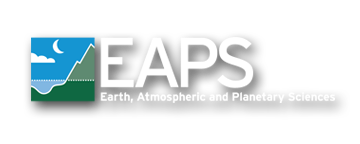Houghton Lecture Series – B.D. Santer (UCLA)
Fingerprinting the Climate System
Abstract: Fingerprint research seeks to improve understanding of the nature and causes of climate change. The basic strategy is to search in observed climate records for the patterns of climate change (the “fingerprints”) predicted by a computer model. Fingerprint studies exploit the fact that different factors affecting climate have different characteristic signatures. These unique attributes are clearer in detailed patterns of climate change than in records like the average temperature of Earth’s surface. Fingerprinting is a powerful tool for separating human and
natural climate-change signals. Results from this research provide scientific support for findings of a “discernible human influence” on global climate and contributed to work recognized by the 2021 Nobel Prize in Physics.
Twenty-seven years ago, at the time of publication of the “discernible human influence” finding in the Second Assessment Report of the Intergovernmental Panel on Climate Change (IPCC), most fingerprint studies relied on surface temperature. Critics of this work argued that a human-caused fingerprint should be identifiable in many different aspects of the climate system – not in surface thermometer records alone. Climate scientists responded to this justifiable criticism by moving beyond early “temperature only” fingerprint studies, interrogating modeled and observed changes in rainfall, water vapor, river runoff, atmospheric circulation, salinity, and many other independently monitored climate variables. As the 2021 Sixth IPCC Assessment report recently concluded, the existence of human-caused fingerprints in the climate system is now “unequivocal”.
My lecture will look back at key scientific milestones in the historical evolution of climate fingerprinting. It also addresses some of the scientific challenges ahead, particularly in terms of communicating the results of fingerprint research to policymakers and the public.
About the Series
Supported through the Houghton Fund, Houghton Lecturers are distinguished visitors from outside MIT invited to spend a period of time, ranging from a week to several months, as scientists-in-residence within the EAPS Program on Atmospheres, Oceans and Climate (PAOC). During their stay it is customary for each lecturer to offer a short-course or a series of lectures on some topic of wide interest. Questions? Contact Daisy Caban: dmcaban@mit.edu



